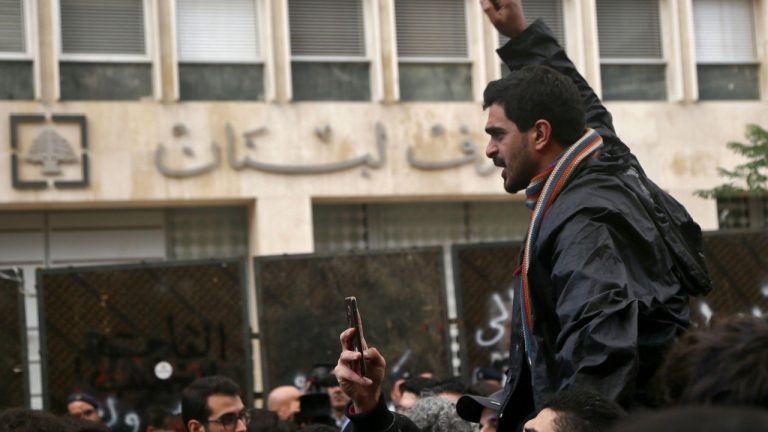
The Lebanese pound’s fall to its lowest ever versus the U.S. dollar, 80,000 to 1, has piled more misery on residents whose local currency-denominated savings have been decimated by inflation. The ongoing strike by banks demanding the passage of capital control legislation has compounded matters for residents.
Lebanese Pound Devaluation
According to several local media reports, Lebanon’s currency recently plunged to a new all-time low of 80,000 per U.S. dollar on the unofficial foreign exchange market. The Lebanese pound’s fall on the parallel market came less than a month after it was devalued by more than 90% on the official market.
Although the currency’s devaluation from 1,507 to 15,000 per dollar was seen as monetary authorities’ attempt to unify the pound’s multiple exchange rates, some experts have argued that the new official exchange rate is pegged way below the rates where most trade takes place.
The currency’s latest plunge meanwhile has piled more misery on Lebanese residents who have already seen the country’s high inflation rate decimate their pound-denominated savings. As previously reported by Bitcoin.com News, the country’s residents have been unable to withdraw their savings after banks froze their accounts.
Capital Control Reforms
To compound matters for residents, the country’s banks recently went on strike and are demanding the passage of capital control laws that restrict foreign and local currency withdrawals. The International Monetary Fund (IMF), which reached a bailout deal with the Lebanese government in April 2022, has reportedly asked for capital control reforms to be carried out before it releases funding.
However, in response to the move by banks as well as the pound’s latest plunge, Lebanese residents reportedly attacked the closed banking outlets. In one video shared on social media, angry Lebanese protesters are seen attempting to set on fire the home of the president of the Association of Lebanese Banks.
Nigerian banks on
and now in Lebanon also. Economic apartheid suppresses whole civilizations and when that is not enough the currency wars are used to tighten the noose. Humanity is rising up. The Revolution has begun.
https://t.co/D9PlFAOArK
— Ray Youssef (@raypaxful) February 17, 2023
On Twitter, some users shared pictures and videos of burning bank buildings while crypto enthusiasts used the Lebanese banks’ ability to block clients’ access to funds to highlight the risks of using a digital currency issued by central banks.
What are your thoughts on this story? Let us know what you think in the comments section below.
















